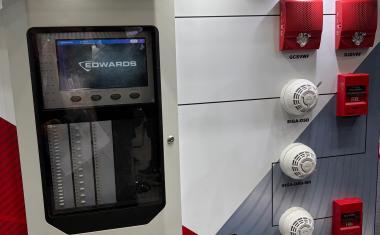Devlopment of Electronic Call Handling Operation (Echo) Project
The British Security Industry Association, Fire Industry Association and Fire Security Association are pleased to be playing a key role in the development of a new Electronic Call...

The British Security Industry Association, Fire Industry Association and Fire & Security Association are pleased to be playing a key role in the development of a new Electronic Call Handling Operation (Echo) project. This aims to deliver a centralised fully automated electronic call handling service to reduce pressure on the emergency services and alarm receiving centres (ARCs) by reducing their call handling times and errors that can occur from manual response handling.
Though Echo will initially focus on automating the call handling process, it will bring about the ability to automate Police URN management as well as exploit the potential for delivering both automated audio and visual alarm confirmation.
Though a similar service to this has been successfully piloted for some time with a limited number of alarm companies and police forces, the Echo project is a milestone change in enabling the technology to be rolled out to other police and fire control rooms.
Following discussions between the National Police Chiefs Council (NPCC) and the private security industry back in 2015, the decision to implement electronic transfer was agreed. This resulted in the NPCC security systems policy citing a date of 2020 for all Alarm Receiving Centres (ARCs) to be operating on an electronic platform.
BSIA, FIA and FSA commented:
“We are delighted to be jointly playing a key role in the development of Echo – which aims to use technology to ease the burden on the emergency services and ARCs. Our three trade bodies will be working closely with the NPCC and other major stakeholders to ensure Echo is delivered on schedule by 2020.”
Though the industry has spent the past 18 months exploring a suitable platform, initial funding to launch the project, has only recently been secured. Since then, an initial briefing of key stakeholders on the expectations and potential of the Echo project has taken place.
A new not-for-profit company, managed by the key stakeholders, will be launched in due course. This will provide direction and governance for Echo. Its initial task will be to scope out the project detail, formalise the Echo technical solution and then begin the role out to “connect” ARCs to emergency service control rooms.
The service is expected to be subscription-based, calculated annually on the number of unique reference numbers (URNs) managed by ARCs, which will be managed online. This will ensure the operation of Echo can be sustained year on year, consistently delivered by industry partners.













